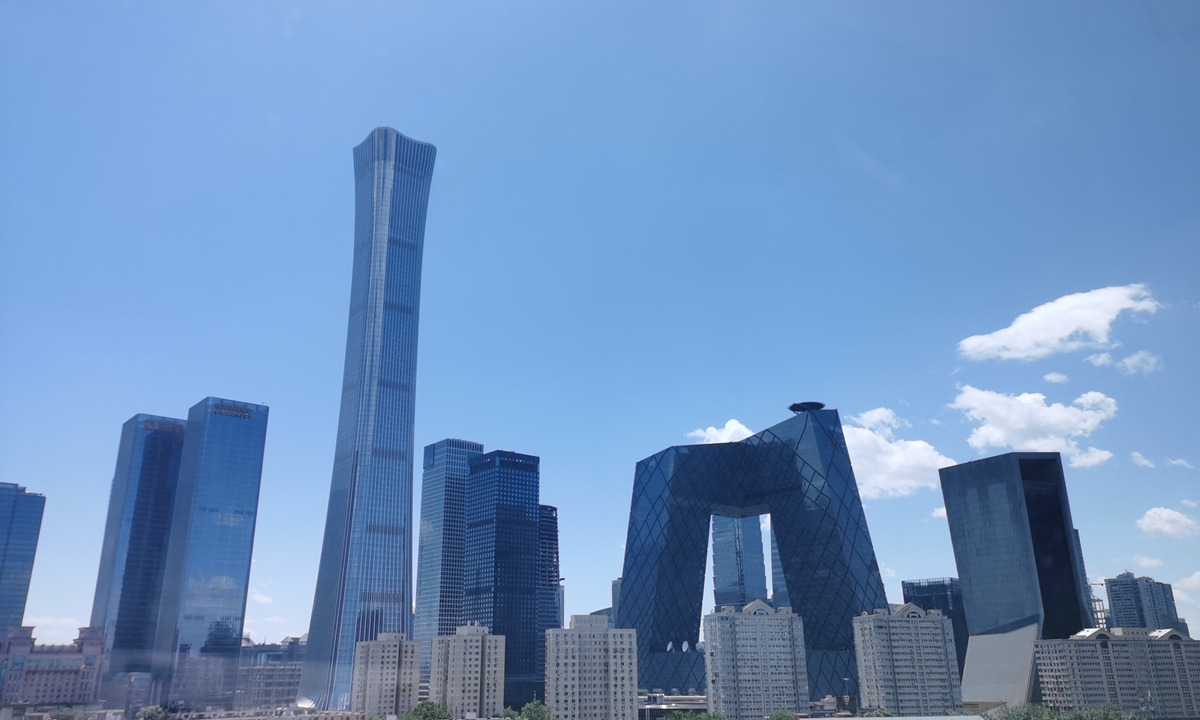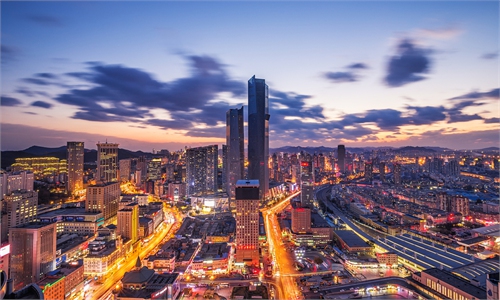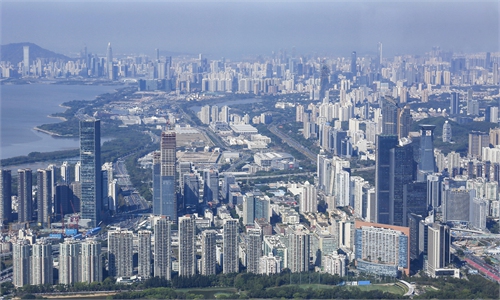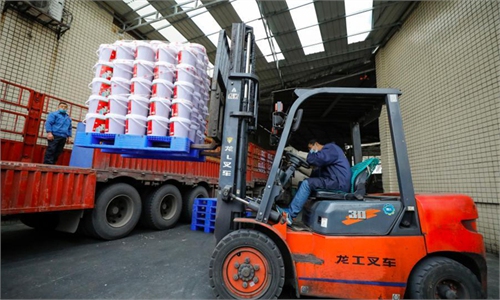
Buildings in Beijing CBD are seen under blue sky on Sunday. Photo: Li Lei/GT
Beijing on Saturday revealed its major economic goals for 2021, including a gross regional product growth at above 6 percent and the consumer price index (CPI) rise around 3 percent. With favorable progress in the digital economy and high-tech innovation, the municipality is assured of meeting the economic targets despite the fallout of the COVID-19 pandemic, a Chinese expert said.
The fourth session of the 15th Municipal People's Congress of Beijing kicked off on Saturday, and Mayor Chen Jining delivered a report on the work of the government, in which a regional GDP target for 2021 is one of the highlights.
Other economic goals of the year include keeping CPI growth at around 3 percent, increasing revenue in general public budgets by more than 3 percent, and keeping the surveyed urban unemployment rate below 5 percent.
The target is not a hard-to-reach goal for Beijing despite its large size, Tian Yun, vice director of the Beijing Economic Operation Association, told the Global Times on Saturday.
Beijing's economic growth pattern is quite different from other cities or regions, as the service sector is the municipality's pillar. Though the service sector's growth rate may be lower than manufacturing industries in the year, which has been hit harder by the virus, Beijing maintains its own advantages.
It has made great achievements in recent years in digital economy, technological innovation and other sectors, and leading the country in the service trade. With proper policies in place, the 6 percent growth goal won't be difficult to realize, Tian said.
Chen said Beijing will continue to take the digital economy as a leading force and build itself into a benchmark city for the global digital economy. It will speed up digital infrastructure construction, including adding 6,000 5G base stations, and establishing a large international data exchange, among other measures.
The city will strive to achieve breakthroughs in research of cutting-edge, key and core technologies such as quantum, artificial intelligence and life science and technology, Chen noted.
The number of national high-tech enterprises in Beijing has reached 29,000, and the number of unicorns, privately held startups valued at over $1 billion, reached 93, ranking first among cities in the world.
It recorded a 1.2 percent regional growth in 2020, with a total of 261,000 new urban jobs created despite the pandemic. Its per capita GDP has reached $24,000, which is about the middle level among developed economies.
Global Times



